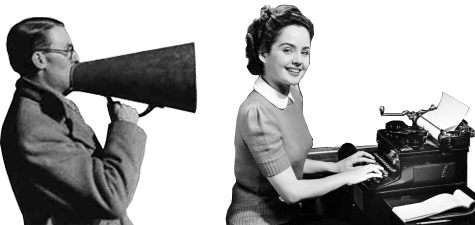You have something important to say. That's why you're writing a book! It may be
a story you're itching to tell, an argument you're compelled to make, or expertise you're ready to share.
You are the expert on what you plan to write, but not necessarily expert in how to write it. Getting
it published, sold and read requires very specific abilities.
That's where a writing coach can help a beginning author who doesn't have training or
experience in writing. Talent may be inherent, and not all of us are born geniuses. But anybody who's
willing to learn and to work at it can become a competent writer. The sorts of skills many of us
learned in journalism schools, newsrooms, or creative-writing courses can be taught as you're working
on your first big publishing project.
You'll learn that good writing starts with clear thinking. And that the very act
of writing can help you think more clearly. Other important premises I use when working with writers
include:
Simple language is powerful. Show, don't tell. Trust your own voice. Don't be afraid to
show your passion for your subject. Rely on nouns and verbs, not adjectives and adverbs. Pick words
that say precisely what you mean. Passive voice should be avoided. Avoid passive voice.
If this seems too elementary, you might still benefit from coaching on more advanced
approaches to structuring a story. I can offer ideas on how to organize a complex body of research
and identify themes. I'll address transitions, how to digress without losing your train of thought,
and tactics for untangling multiple threads of time and place.
In more than 30 years as an editor, I have worked with hundreds of writers at all
levels of talent and experience. I've helped raw interns master the basics of news writing, and have
worked with world-class reporters to develop major projects.
|
|
Helping to make writing easier and more readable.
 Working with a writer, like coaching an athlete, includes everything from mastering the
fundamentals to high-level strategic thinking. Don't expect a lot of yelling or arguing with referees.
Do expect to be asked to try different approaches to how you choose a word, build a sentence and
introduce new characters.
Working with a writer, like coaching an athlete, includes everything from mastering the
fundamentals to high-level strategic thinking. Don't expect a lot of yelling or arguing with referees.
Do expect to be asked to try different approaches to how you choose a word, build a sentence and
introduce new characters.
The coaching process can begin at any point. Ideally you'll have a chapter or two, a
draft or notes or an outline that can be a starting point. The give and take of coaching may easily
evolve into the final editing of your finished work.
To request a rate quotation,  to query form.
to query form.
|
|
